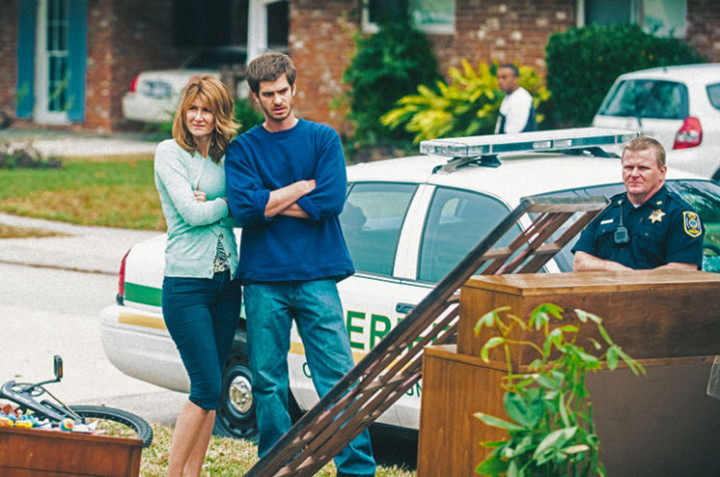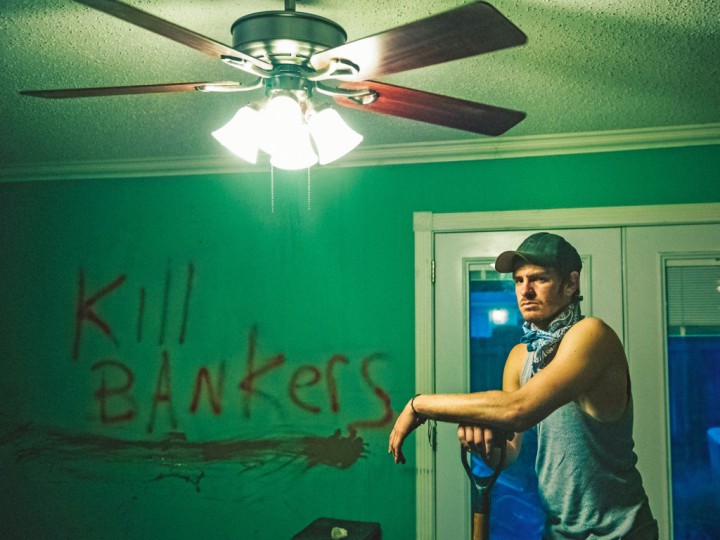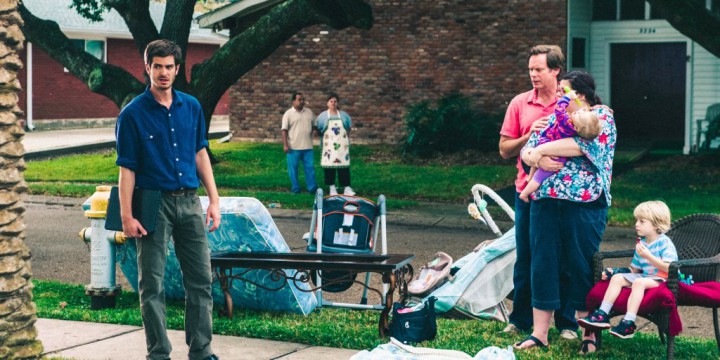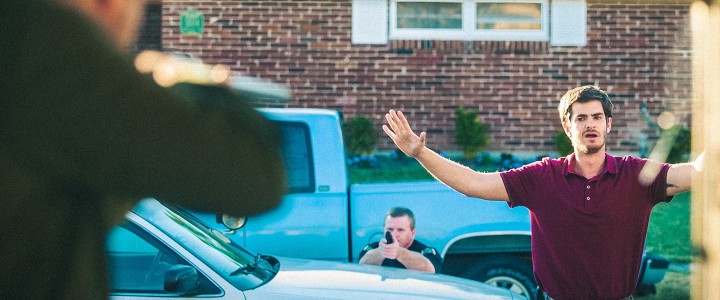Perhaps the most notable thing about 99 Homes is that it really moves right along — something that cannot be said about the other Ramin Bahrani films I’ve seen. Whether that is a desirable thing is a separate question, better debated by persons more in tune with Bahrani than I am. I have nothing against Mr. Bahrani. I suspect — based on his films — that his worldview is one I’m comfortable with, but I’ve seen nothing to convince me of Roger Ebert’s claim that he’s “the great new American director.” I don’t think he’s a bad filmmaker. I simply see nothing remarkable about his films or filmmaking. And 99 Homes did nothing to change that. If anything, it may have lessened my appreciation. That it’s a righteously angry film about the predators who preyed on the victims of the burst of the housing market in the 2008 economic crisis is fine — even if Bahrani’s strained seriousness makes it a hard film to like. What’s not so fine is that, when all is said and done, it’s a very old-fashioned morality play. If DeMille had made it 90 years ago, he would have capped it off with a title reading, “For what is a man profited, if he shall gain the whole world, and lose his own soul?” — in Olde English lettering.
The attempt to find a broader audience by using name (but not box office draw) actors, and the fact that the film is less contemplative (read: faster-paced) than the usual Bahrani fare, doesn’t keep it from being every inch an indie — right down to its obnoxious musical score — and a prickly one. The market for a movie about the American Dream becoming the American Nightmare is small to say the least, and it’s whittled down even further by having a script that never cracks a smile. It’s as if it’s far too high-minded for that sort of thing, and maybe it is, but it’s stifling its own message in the bargain.
The film stars Andrew Garfield as Dennis Nash, a nice guy who lives with his mother (Laura Dern) and his son (Noah Lomax) in the old family home (a non-descript 1970s piece of Florida suburbia) until he misses three mortgage payments. This results in him finding the sheriff’s department and unscrupulous real estate broker Rick Carver (Michael Shannon) on his front porch evicting him, leaving most of his possessions on the street and his family taking up residency in a rundown motel filled with people just like them. Through circumstances that could only be called contrived, Nash ends up working for Carver, quickly advancing from grunt labor to a full-blown protege, and slowly losing his own sense of humanity in the process.
It’s all well-done and well-acted. But, while aspects of it are undeniably powerful and important, its trajectory is awfully apparent early on. With each increasingly predictable move, 99 Homes loses some of its punch. By the time it arrives at its conclusion — dealt from a very stacked deck — its power has significantly diminished. Yes, both Garfield and Shannon are excellent. Bahrani’s direction is solidly workmanlike (with one brilliant shot that goes on too long). But, for me, it’s not enough to justify almost two solid hours of hard luck and moral crises. Rated R for language, including some sexual references, and a brief violent image.
Playing at Carolina Cinemas and Regal Biltmore Grande.








This, by the way, departs by Friday at The Carolina and I suspect at the Regal.